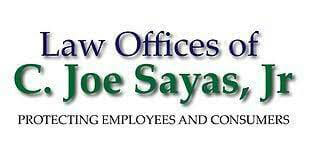
Q: I worked in a company for over 5 years. A client accused me of making a mistake in a big order. This was not true. But the new manager, who did not like me and wanted to bring in his best friend to do my job, used the client’s complaint as a reason to fire me. No investigation was done, and I was not placed on any performance improvement plan. I have been “employee of the year” twice and I don’t have any disciplinary record. This is really unfair. Can I sue for wrongful termination?
A: Unfortunately, unfair or unjust does not necessarily mean illegal or wrongful. People often believe that they can sue their employer for wrongful termination if they have been fired unfairly or “without cause.” “Wrongful termination” is a term that has a specific legal meaning. It only applies to situations where the employer fired the employee for illegal reasons such as discrimination or retaliation. Wrongful termination may also exist if the employer breached its employment contract in firing its employee. In California, if there was no employment contract then the employment relationship is “at-will.”
What is At-Will Employment?
The employment-at-will doctrine states that either the employer or the employee may end the employment relationship at any time. This means an employee can quit their job for any reason at any time. Likewise, the employer may terminate the employee at any time, even if the employee’s job performance was excellent. The employer may also terminate employees for unfair reasons such as nepotism or favoritism. The employer may even terminate the employee for no reason at all.
However, an employment contract signed between employer and employee limits an employer’s freedom to terminate employees at will. Such a contract will usually provide that the employee can only be fired for “good cause” or “just cause.” This may be true, for example, in the collective bargaining agreement of employees who are union members.
Wrongful Termination Due to Discrimination
A termination is illegal if it is based on discriminatory intent. Discriminatory intent applies when an employee was terminated because of their protected characteristics such as age, race, sex, color, national origin, disability, medical condition, pregnancy, religion, and even union affiliation.
Wrongful Termination Due to Violation of Public Policy
A termination is also illegal if it violates public policy. This means that the employee was fired for:
- Refusing to violate a statute (e.g., refusing to commit an illegal act)
- Performing a statutory obligation (e.g., being absent in order to serve in a jury)
- Exercising a statutory right or privilege (e.g., declining to take a polygraph examination)
- Reporting a statutory violation for the public’s benefit (e.g., reporting the employer’s illegal act to a government or law enforcement agency – also known as “whistleblowing”)
Retaliatory Firing is Wrongful Termination
A termination may also be wrongful if the employer was retaliating against the employee for engaging in a “protected activity” such as registering internal complaints regarding the safety of the employer’s products or for refusing to engage in nonconsensual sexual acts. Employers are prohibited from retaliating against employees who opposed unlawful practices, filed complaints, testified as a witness, assisted, or participated in an investigation, proceeding, or hearing conducted by a government agency.
Terminations can be unfair. Unfortunately, an employer’s unfair conduct may not necessarily be illegal. But if there is a discriminatory or retaliatory motive behind the firing, employees should not hesitate to consult an experienced employment attorney to determine available remedies under the law.
The Law Offices of C. Joe Sayas, Jr. welcomes inquiries about this topic. All inquiries are confidential and at no-cost. You can contact the office at (818) 291-0088 or visit www.joesayaslaw.com. [For more than 25 years, C. Joe Sayas, Jr., Esq. successfully recovered wages and other monetary damages for thousands of employees and consumers. He was named Top Labor & Employment Attorney in California by the Daily Journal, consistently selected as Super Lawyer by the Los Angeles Magazine, and is a past Presidential Awardee for Outstanding Filipino Overseas.]

